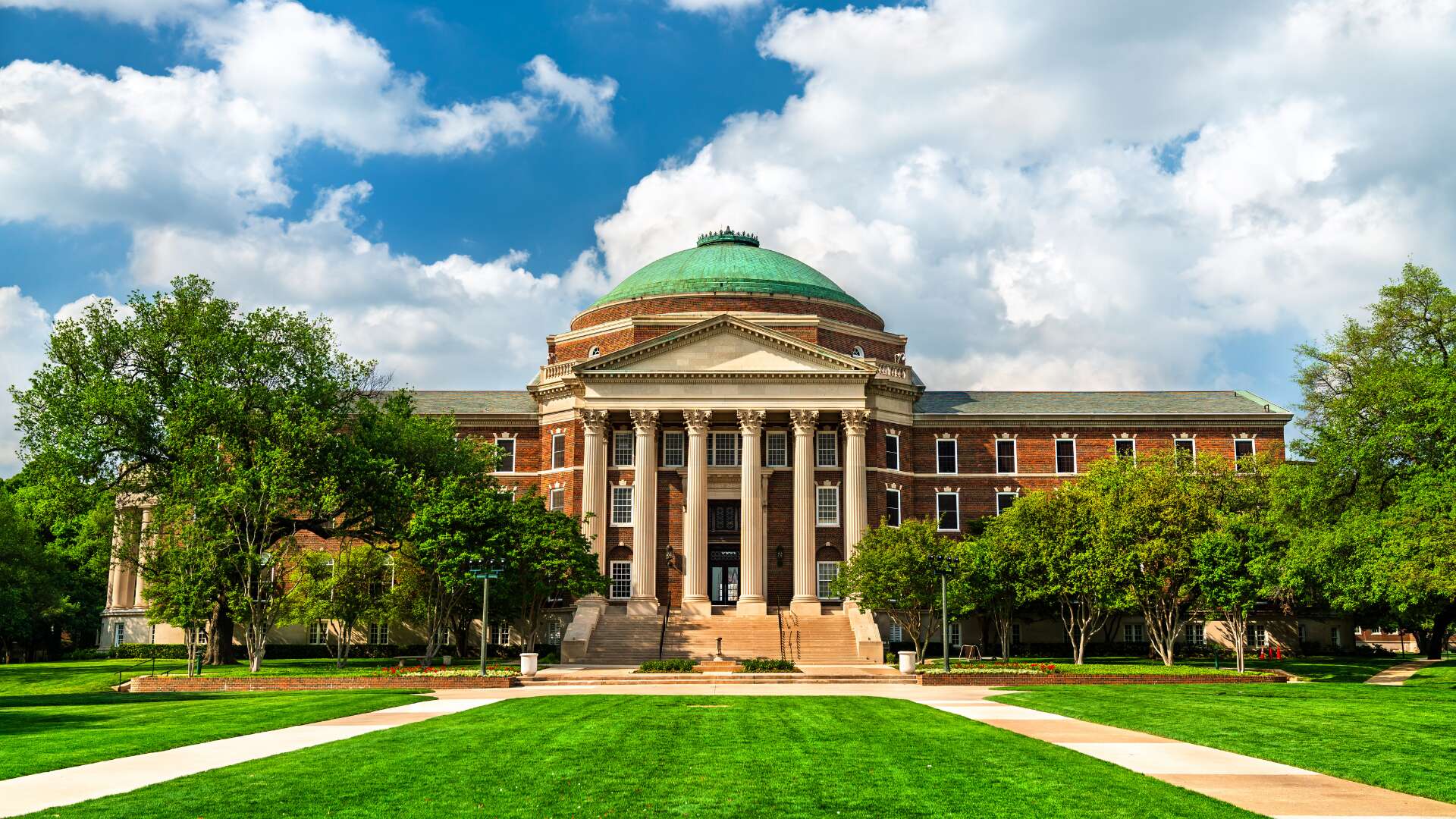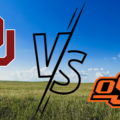
Southern Methodist made the list.
Do you want to study business at a college in the U.S. South that’s not too big and not too small and (in many cases because of scholarship offers and/or in-state tuition) not too expensive? You’ve come to the right article, Goldilocks.
The 3,000–7,000 range strikes a balance between the intimacy of small colleges and the resources of larger universities. Business students benefit from robust facilities (e.g., trading rooms at SMU) and personalized attention, unlike at massive schools where they might feel lost.
Southern Growth
The South’s economic expansion (e.g., tech in Austin, finance in Charlotte) makes it a strategic region for business students aiming to enter dynamic markets without the saturated competition of Northeast or West Coast hubs.
Cultural Fit
Students who value community, tradition, or a slower-paced lifestyle may prefer Southern schools over urban Northern or Western institutions, while still accessing high-caliber business education.
With that said, there are always trade-offs. While these schools may have less national name recognition than Ivy Leagues or large publics (e.g., UT Austin), their regional clout and personalized education often outweigh this for career-focused students.
Yet, students should research specific programs to ensure alignment with their goals (e.g., finance at Richmond vs. music business at Belmont) and visit campuses to confirm cultural fit.
In short, a mid-sized Southern college offers a business student personalized education, strong regional networks, affordability, and a supportive environment, all in a region with thriving economic opportunities.
My Top 20 Undergraduate Business Programs in the U.S. South at Colleges with 3,000–9,000 Undergraduates…In No Particular Order…
1. Wake Forest University – School of Business (Winston-Salem, NC)
Undergrad Enrollment: ~5,400
Why: Offers a personalized business education with small classes and a focus on leadership and ethics. Strong career services and experiential learning, with 98% of graduates employed or in grad school within six months.
Acceptance Rate: ~21%
Net Price: ~$26,000
Standout: Emphasis on character development and global business.
2. University of Richmond – Robins School of Business (Richmond, VA)
Undergrad Enrollment: ~3,200
Why: AACSB-accredited with a liberal arts-integrated curriculum. Strong finance and marketing programs, with excellent internship opportunities and a tight-knit alumni network.
Acceptance Rate: ~24%
Net Price: ~$29,000
Standout: High job placement rates and proximity to business hubs.
3. Southern Methodist University – Cox School of Business (Dallas, TX)
Undergrad Enrollment: ~7,000
Why: Renowned for finance and entrepreneurship programs, with strong ties to Dallas’s business community. Offers hands-on learning through the Business Leadership Institute.
Acceptance Rate: ~52%
Net Price: ~$45,000
Standout: Access to energy and tech industries.
4. Elon University – Martha and Spencer Love School of Business (Elon, NC)
Undergrad Enrollment: ~6,300
Why: AACSB-accredited with a focus on experiential learning, including case competitions and study abroad. Strong in marketing and entrepreneurship.
Acceptance Rate: ~74%
Net Price: ~$39,000
Standout: High student satisfaction and engaged faculty.
5. Trinity University – School of Business (San Antonio, TX)
Undergrad Enrollment: ~3,500
Why: Small, AACSB-accredited program with strengths in accounting and finance. Emphasizes leadership and analytics, with robust career support.
Acceptance Rate: ~31%
Net Price: ~$30,000
Standout: Personalized attention and strong regional reputation.
6. College of William & Mary – Raymond A. Mason School of Business (Williamsburg, VA)
Undergrad Enrollment: ~6,800
Why: AACSB-accredited with a rigorous curriculum blending liberal arts and business. Strong in accounting and consulting, with high job placement rates.
Acceptance Rate: ~33%
Net Price: ~$22,000 (in-state)
Standout: Historic prestige and global business focus.
7. Furman University – Department of Business and Accounting (Greenville, SC)
Undergrad Enrollment: ~3,500
Why: Liberal arts approach with a focus on sustainability and ethics. Strong internship programs and alumni connections in the Southeast.
Acceptance Rate: ~57%
Net Price: ~$35,000
Standout: Small classes and community engagement.
8. Rhodes College – Department of Business (Memphis, TN)
Undergrad Enrollment: ~3,600
Why: AACSB-accredited with a focus on analytical skills and leadership. Strong in finance and management, with access to Memphis’s business community.
Acceptance Rate: ~54%
Net Price: ~$30,000
Standout: Interdisciplinary curriculum and career prep.
9. Samford University – Brock School of Business (Birmingham, AL)
Undergrad Enrollment: ~3,800
Why: AACSB-accredited with strengths in entrepreneurship and finance. Offers hands-on learning through the Brock Family Entrepreneurship Center.
Acceptance Rate: ~83%
Net Price: ~$31,000
Standout: Faith-based approach and regional networks.
10. Lipscomb University – College of Business (Nashville, TN)
Undergrad Enrollment: ~3,700
Why: AACSB-accredited with a focus on innovation and ethics. Strong in accounting and marketing, with connections to Nashville’s growing business scene.
Acceptance Rate: ~61%
Net Price: ~$27,000
Standout: Entrepreneurial focus and career services.
11. Millsaps College – Else School of Management (Jackson, MS)
Undergrad Enrollment: ~3,200
Why: AACSB-accredited with a liberal arts foundation. Strong in finance and management, with personalized advising and internship opportunities.
Acceptance Rate: ~68%
Net Price: ~$24,000
Standout: Small size and regional business ties.
12. Hampden-Sydney College – Department of Economics and Business (Hampden-Sydney, VA)
Undergrad Enrollment: ~3,400
Why: Focus on leadership and ethics in a small, all-male setting. Strong alumni network in finance and consulting.
Acceptance Rate: ~50%
Net Price: ~$28,000
Standout: Unique liberal arts-business blend.
13. Centre College – Economics and Business Program (Danville, KY)
Undergrad Enrollment: ~3,300
Why: Liberal arts focus with strong finance and management tracks. High job placement and study abroad opportunities.
Acceptance Rate: ~62%
Net Price: ~$23,000
Standout: Personalized education and alumni support.
14. Sewanee: The University of the South – Department of Business (Sewanee, TN)
Undergrad Enrollment: ~3,600
Why: Integrates business with liberal arts, focusing on sustainability and leadership. Strong regional reputation and alumni network.
Acceptance Rate: ~52%
Net Price: ~$36,000
Standout: Scenic campus and ethical focus.
15. Belmont University – Jack C. Massey College of Business (Nashville, TN)
Undergrad Enrollment: ~7,000
Why: AACSB-accredited with strengths in entrepreneurship and music business. Strong ties to Nashville’s economy.
Acceptance Rate: ~83%
Net Price: ~$34,000
Standout: Unique music business program.
16. Christopher Newport University – Luter School of Business (Newport News, VA)
Undergrad Enrollment: ~4,500
Why: AACSB-accredited with a focus on leadership and analytics. Strong internship programs and career outcomes.
Acceptance Rate: ~85%
Net Price: ~$25,000
Standout: Public school value and small classes.
17. Mercer University – Stetson-Hatcher School of Business (Macon, GA)
Undergrad Enrollment: ~4,800
Why: AACSB-accredited with strengths in finance and entrepreneurship. Offers experiential learning and strong regional ties.
Acceptance Rate: ~74%
Net Price: ~$22,000
Standout: Affordable and career-focused.
18. Rollins College – Crummer School of Business (Undergraduate Programs) (Winter Park, FL)
Undergrad Enrollment: ~3,700
Why: AACSB-accredited with a focus on global business and leadership. Strong in marketing and international business.
Acceptance Rate: ~61%
Net Price: ~$35,000
Standout: Florida location and alumni network.
19. Stetson University – School of Business Administration (DeLand, FL)
Undergrad Enrollment: ~3,900
Why: AACSB-accredited with strengths in finance and entrepreneurship. Emphasizes experiential learning and ethics.
Acceptance Rate: ~81%
Net Price: ~$24,000
Standout: Small size and personalized education.
20. Oglethorpe University – Hammack School of Business (Atlanta, GA)
Undergrad Enrollment: ~3,500
Why: Focus on leadership and innovation in a liberal arts setting. Strong internship opportunities in Atlanta’s business hub.
Acceptance Rate: ~70%
Net Price: ~$22,000
Standout: Affordable and urban access.
Some final tips to keep in mind:
Remember, fit matters! As you narrow down your list, consider campus culture, location (e.g., urban access in Dallas or Atlanta vs. smaller towns), and specific concentrations (e.g., finance, entrepreneurship). Visit campuses if possible, as smaller schools like Rhodes or Furman offer unique vibes.
Always keep look at job placement rates and alumni networks, especially for schools like Wake Forest or SMU with strong corporate ties.
Public options like Christopher Newport or in-state tuition at William & Mary offer value, while private schools like Mercer or Oglethorpe are more affordable among private peers.
Big Takeaway
Studying business at an undergraduate school with 3,000 to 7,000 students in the U.S. South is a wise choice for many high school seniors seeking a personalized and career-focused education in a region with booming economic opportunities. Schools like Wake Forest University (5,400 undergrads) or Elon University (6,300) offer small class sizes and low student-to-faculty ratios, fostering close relationships with professors who provide mentorship and hands-on learning through case studies, internships, and business simulations. This intimate environment ensures students aren’t lost in the crowd, allowing them to build strong peer networks and take on leadership roles in business clubs or entrepreneurial ventures. The U.S. South, with thriving business hubs like Dallas, Atlanta, and Nashville, provides access to robust regional networks, internships, and job placements in industries such as finance, tech, and healthcare. For instance, programs at Southern Methodist University (~7,000 undergrads) leverage Dallas’s corporate landscape, connecting students with alumni and employers for real-world experience, making these schools ideal for launching a successful business career.
Beyond academics, these mid-sized Southern schools offer a balanced lifestyle and affordability that appeal to many seniors. Institutions like Mercer University (4,800 undergrads) or Christopher Newport University (4,500) combine AACSB-accredited business programs with vibrant campus communities, where students can enjoy Southern hospitality, diverse settings (from urban to scenic), and a sense of belonging. With net prices often lower than those of larger or elite private schools—Mercer at $22,000 or William & Mary at ~$22,000 for in-state students—these universities provide strong value and return on investment, especially given their high job placement rates (e.g., Wake Forest’s 98% employed or in grad school within six months). The interdisciplinary focus at schools like Rhodes College (3,600 undergrads), blending business with liberal arts, equips graduates with critical thinking and communication skills, preparing them for leadership roles in a dynamic global economy. For seniors prioritizing personalized education, regional opportunity, and a supportive environment, these schools are a strategic and rewarding choice.



